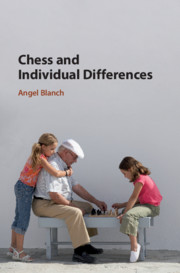Book contents
- Frontmatter
- Contents
- List of Figures
- List of Tables
- Preface
- Acknowledgements
- 1 Introduction
- 2 Quantifying Chess Skill
- 3 Cognition
- 4 Individual Differences
- 5 Psychophysiology and Brain Functioning
- 6 Intelligence
- 7 Personality
- 8 Expertise
- 9 Sex Differences
- 10 Applications
- 11 Concluding Remarks
- Appendix 1
- Appendix 2
- Appendix 3
- Appendix 4
- Glossary
- References
- Index
10 - Applications
Published online by Cambridge University Press: 03 December 2020
- Frontmatter
- Contents
- List of Figures
- List of Tables
- Preface
- Acknowledgements
- 1 Introduction
- 2 Quantifying Chess Skill
- 3 Cognition
- 4 Individual Differences
- 5 Psychophysiology and Brain Functioning
- 6 Intelligence
- 7 Personality
- 8 Expertise
- 9 Sex Differences
- 10 Applications
- 11 Concluding Remarks
- Appendix 1
- Appendix 2
- Appendix 3
- Appendix 4
- Glossary
- References
- Index
Summary
This chapter reviews the use of chess in business, health, and education. In business, chess has been used with educational purposes, and as a model to evaluate game-theory aspects of the game. In health, there are applications of chess to address problems such as attention deficit hyperactivity disorder (ADHD), neurodegenerative disorders, or schizophrenia. In education, chess has become widely used as a pedagogical method thought to entail education al benefits for languages, mathematics, concentration, self-control, or the development of socio-affective competences. Some recent studies suggest significant higher levels of academic performance for schoolchildren and adolescents into chess-based teaching or who practice chess on a regular basis, when compared with students uninvolved in chess playing or chess instruction. Another set of studies, however, question the purported benefits of chess training for formal education. According with this latter point of view, there are both conceptual and methodological concerns that hinder in a great extent the available evidence about the association of chess training with academic achievement. Two of these issues relate with the transfer of abilities across domains, and with the concept of statistical power, which are addressed in greater depth within this chapter.
- Type
- Chapter
- Information
- Chess and Individual Differences , pp. 181 - 200Publisher: Cambridge University PressPrint publication year: 2020

